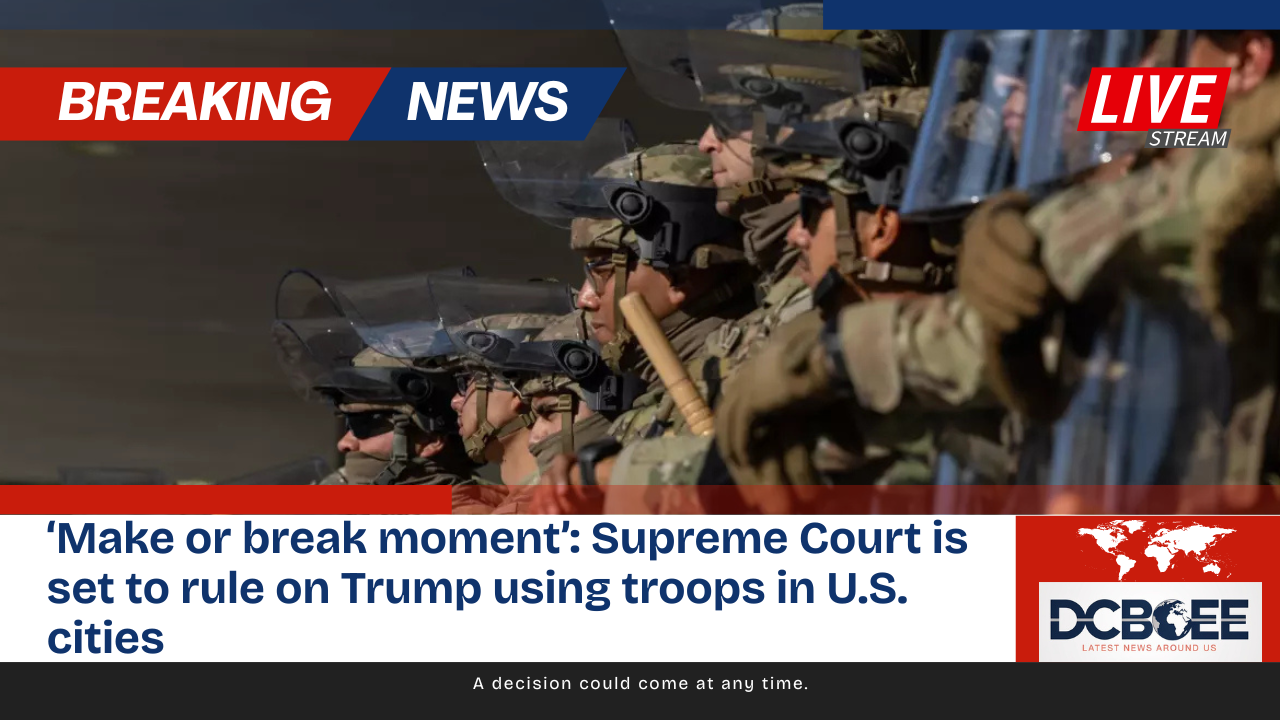
‘Make or break moment’: Supreme Court is set to rule on Trump using troops in U.S. cities
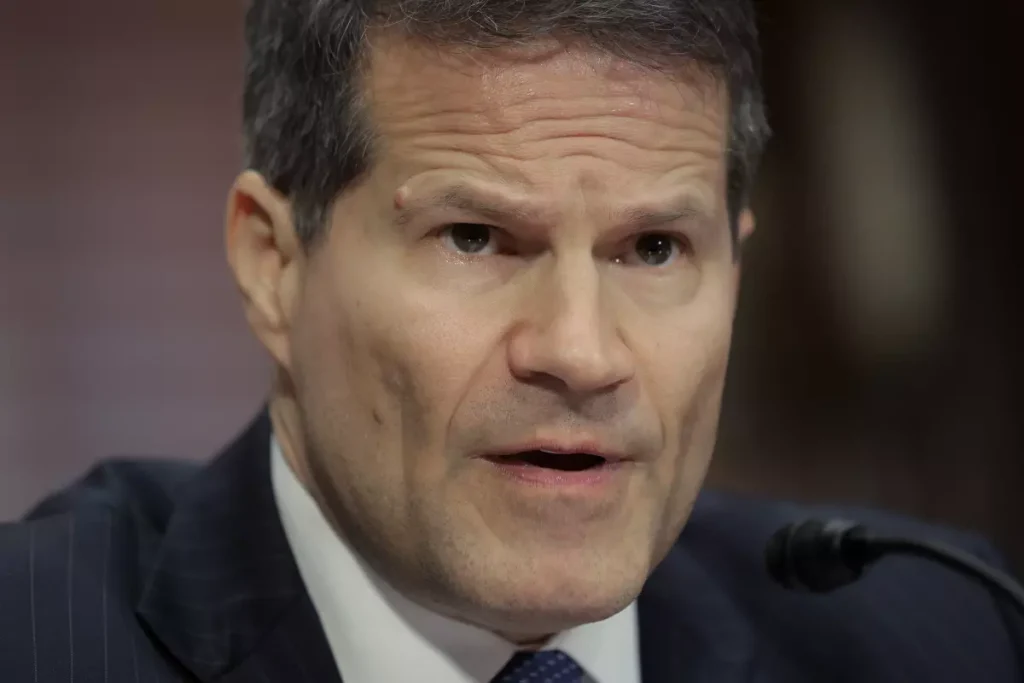
Trump’s lawyers say that the National Guard would not be employed to enforce the law, but to protect federal workers and property.
A federal judge who was selected by Trump said that the administration’s portrayal of Portland as “war-ravaged” was “untethered to the facts.”
WASHINGTON — The Supreme Court is ready to rule for the first time on whether the president has the ability to deploy troops in American cities despite the concerns of local and state governments.
A choice could be made at any time.
And even a one-line order that backed President Trump would show that he can use the military to carry out his orders, especially in states and towns controlled by Democrats.
Last Monday, lawyers for the Trump administration filed an emergency appeal asking the court to overturn judges in Chicago who stopped the National Guard from going there. The judges in Chicago said that Trump overstated the danger that federal immigration agents faced and that he had compared “protests with riots.”
However, lawyers for the Trump administration contended that these judges did not have the power to question the president. In their appeal in Trump vs. Illinois, they said that “the power to deploy the National Guard is committed to his exclusive discretion by law.”
The court’s conservatives could like that wide claim of presidential power.
In response to vigorous immigration enforcement, administration lawyers informed the court that the National Guard would “defend federal personnel, property, and functions in the face of ongoing violence,” but it would not do regular police. But Trump has said several times that he would send U.S. military to San Francisco and other Democratic-led cities to do regular police work.
In June, he sent 4,000 Guard men and 700 Marines to Los Angeles to safeguard federal buildings from demonstrators. But state officials say the troops did more than that; they were utilized to put on a show of force in MacArthur Park in July.
Newsom and Bonta say there are risks
That’s why lawyers and Democratic leaders are ringing the alarm.
Steve Vladeck, a law professor at Georgetown and a frequent opponent of the court’s pro-Trump emergency rulings, said, “Trump v. Illinois is a make-or-break moment for this court.” It would be a terrible precedent for the Supreme Court to set if it let the president send troops into our cities based on made-up (or even government-made) facts. This would not only let President Trump do what he wants now, but it would also let him do even worse things. “For the first time in our nation’s history, the President used [the Militia Act of 1903] to federalize a State’s National Guard against the wishes of the State’s Governor on June 7.” Their brief claimed, “Since then, it has become clear that the federal government’s actions in Southern California earlier this summer were just the opening salvo in an effort to change the role of the military in American society.”
The President has never used the military like this before, as his own personal police force to carry out whatever law enforcement tasks he sees fit. What the federal government wants is a standing army made up of state militias that the President can send anywhere in the country for civilian law enforcement purposes for an indefinite period of time. Conservatives use examples from civil rights
Conservatives say that Trump is trying to enforce federal law even though local officials often don’t want to help or cooperate.
John Yoo, a law professor at UC Berkeley, said, “Portland and Chicago have seen violent protests outside of federal buildings, attacks on ICE and DHS agents, and organized efforts to block the enforcement of immigration law.” Local leaders have called the federal government a “occupation” and a “dictatorship,” but the Constitution says that the president must “take care that the laws are faithfully executed.”
He said that presidents in the past “used these same powers to desegregate southern schools after Brown v. Board of Education in the 1950s and to protect civil rights protesters in the 1960s.” He remarked, “Those who cheer those actions can’t now deny the same constitutional power when a president they don’t like uses it.”
The legal fight so far has not looked at Trump’s biggest claims of having unlimited power. Instead, it has looked at whether he is following the laws that Congress passed.
The Constitution grants Congress the ability “to call forth the Militia to execute the laws of the Union, suppress insurrections, and repel invasions.”
Starting in 1903, Congress said that “the President may call into Federal service members and units of the National Guard of any State in such numbers as he considers necessary” if he faces “danger of invasion by a foreign nation … danger of a rebellion against the authority of the government of the United States or the president is unable to execute the laws of the United States.”
Lawyers for the Trump administration say he is facing a “rebellion,” but the court battle has been about whether he is “unable to execute the laws.”
Lower courts have stopped deployments.
Federal district courts in Portland and Chicago stopped Trump’s deployments after deciding that protestors had not stopped U.S. immigration agents from conducting their jobs.
Judge Karin Immergut, who was appointed by Trump, said that the administration’s description of “war-ravaged” Portland was “untethered to the facts.” Judge April Perry, who was appointed by Biden, declared in Chicago that “political opposition is not rebellion.”
The 9th Circuit in San Francisco and the 7th Circuit in Chicago, on the other hand, made different rulings.
A group of judges on the 9th Circuit argued that judges should trust the president’s judgment about how dangerous immigration officials are. The appeals court voted 2-1 to let the National Guard deployment in Portland go ahead, using that standard. But a group of judges on the 7th Circuit in Chicago sided with Perry.
Last Thursday, they ruled 3-0 that “the facts do not support the President’s actions in Illinois, even giving a lot of weight to his claims.” “Federal facilities, including the processing facility in Broadview, have remained open despite regular demonstrations against the administration’s immigration policies. And even if federal police have had some problems, local, state, and federal authorities have rapidly dealt with them.
Lawyers for Illinois and Chicago concurred and asked the court to deny Trump’s appeal. They said, “There is no reason to say that the President is ‘unable’ to ‘execute’ federal law in Illinois.” “Federal buildings in Illinois are still open, and those who broke the law by attacking federal officials have been arrested. In fact, enforcement of immigration law in Illinois has only gotten stronger in the past few weeks.” In his appeal, Trump’s Solicitor General D. John Sauer told a quite different story.
He added, “On October 4, the President decided that the situation in Chicago had become too dangerous for federal agents to stay there and do their jobs.” “The President sent the federalized Guardsmen to Illinois to keep federal officers and property safe.” He disagreed with the concept that agents only met peaceful protesters.
“Protesters at the Broadview facility have also attacked and punched federal officers several times. “The fights got worse and the fights got worse as the crowds grew larger throughout September,” Sauer wrote. “Rioters have used fireworks to attack federal officers and have thrown bottles, rocks, and tear gas at them.” More than 30 [DHS] officers have been hurt in attacks on federal law enforcement at the Broadview facility alone, and many of them have had to go to the hospital.
He told the court that the judges in Chicago had no legal or factual reason to stop the deployment, and he asked them to ignore their decisions.
See Also: Hungary’s Orbán vows to ‘circumvent’ US sanctions on Russian oil titans

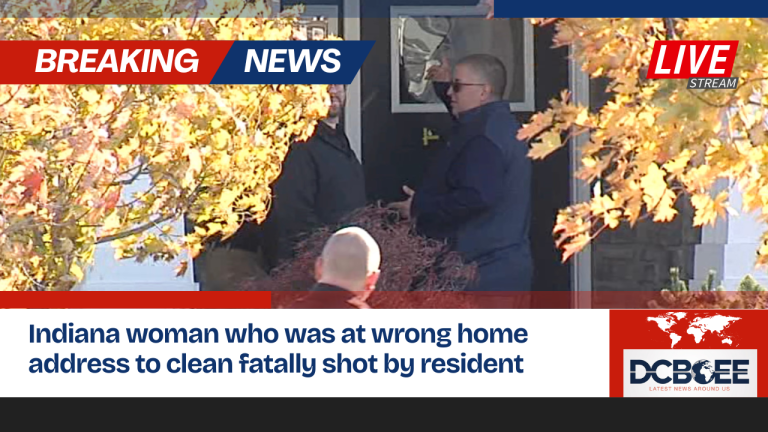
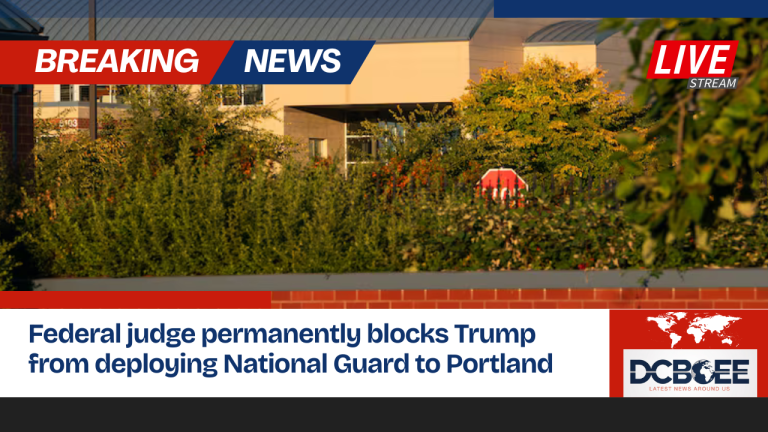
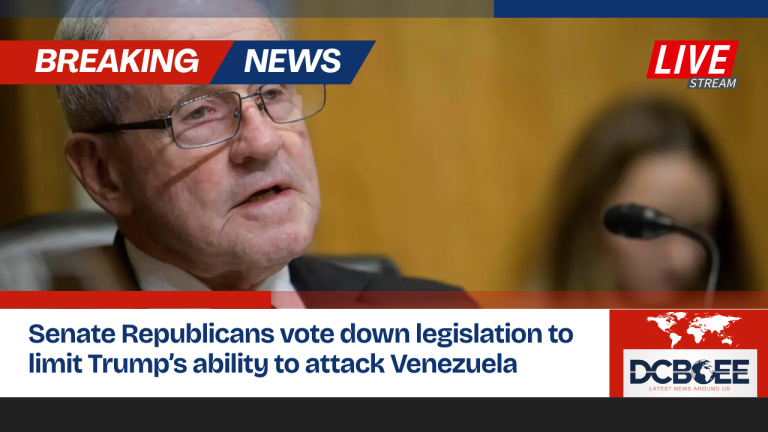


![My biggest AirPods Pro 3 problem has improved, how about you? [Poll]](https://dcboee.us/wp-content/uploads/2025/11/President-Faces-Impeachment-Nation-Braces-for-Political-Turmoil-67-768x432.png)
